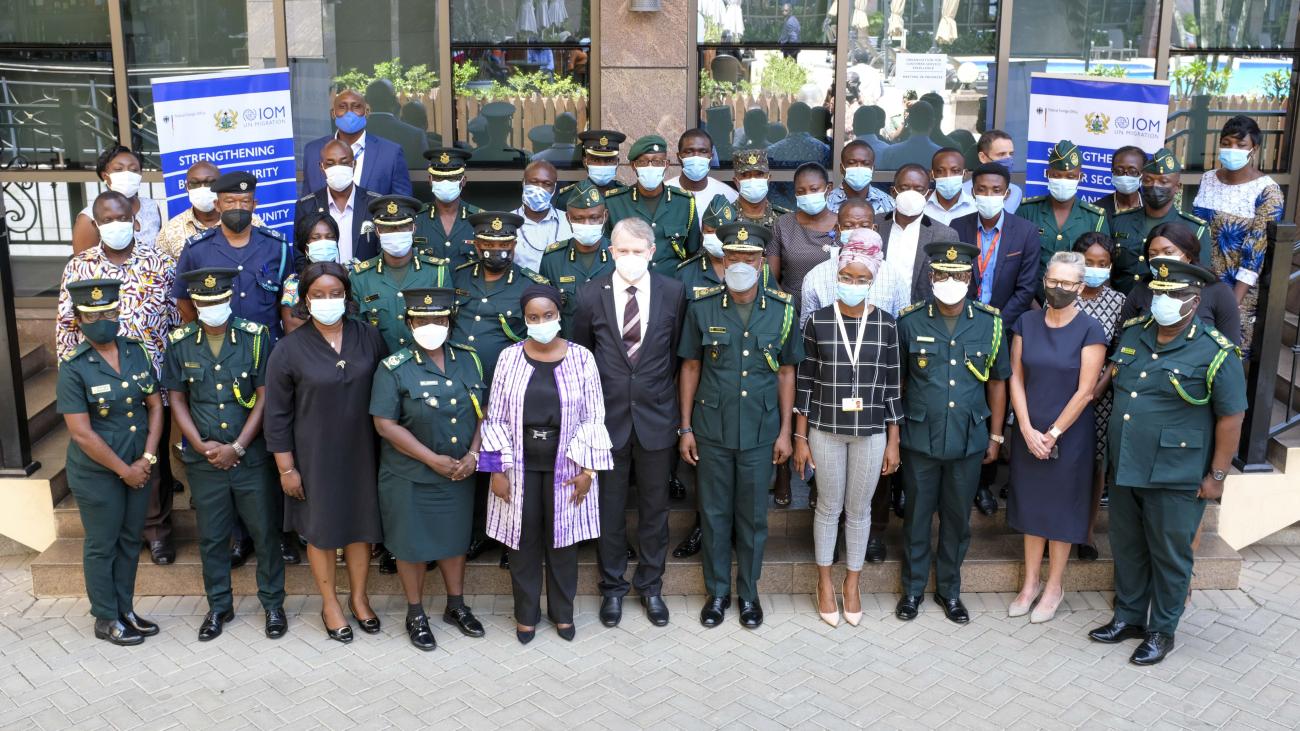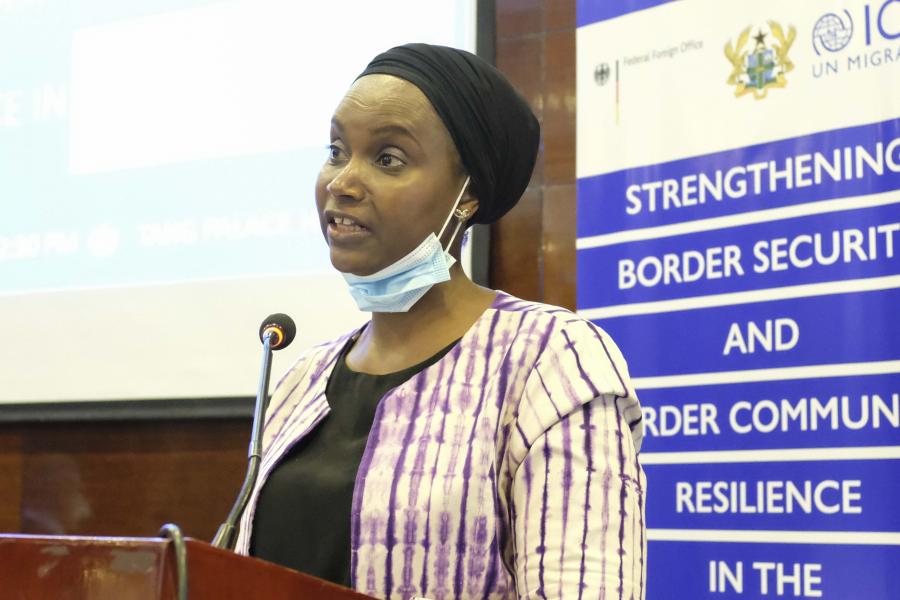IOM and Ghana Immigration Service launch project to strengthen border security

IOM continues to be committed to support the Government of Ghana and countries in West Africa to effectively and humanely manage migration.
The International Organization for Migration (IOM) and the Ghana Immigration Service (GIS) launched the project “Strengthening Border Security and Border Community Resilience in the Gulf of Guinea”. With funding from German Federal Foreign Office, the project aims to contribute to the improvement of regional stability by strengthening border management capacities at select border posts in northern border regions of Benin, Côte d’Ivoire, Ghana and Togo.
“The Government of Ghana is doing its best in its responsibility towards securing our borders,” said Kwame Asuah Takyi, Comptroller-General of GIS. He added: “The Ghana Immigration Service is looking forward to collaborating with all the stakeholders in realizing an effectively managed border for the country.”

Border management agencies in West Africa, including those in Benin, Côte d’Ivoire, Ghana and Togo, face several challenges related to border management. They include the lack of adequate infrastructure and equipment at existing border posts; the porosity of borders; and the activities of trafficking and smuggling networks. Additionally, there is a need to address the emergent threat of violent extremism spreading from the Sahel and ongoing public health emergencies of international concern, such as the COVID-19 pandemic or the recent Ebola outbreak.
“Responding to the multi-faceted challenges requires a holistic and strategic approach. One that brings together all stakeholders, including border communities and civil society,” said Abibatou Wane-Fall, Chief of Mission at IOM Ghana. She added: “This approach should combine traditional security interventions with preventative actions that put border communities at the center of border management strategies and that seek to build the resilience of these communities against factors that make them vulnerable to cross border criminal groups.”
The project interventions will include the renovation/construction of five border posts, including the installation of renewable energy sources, the provision of patrol equipment, and the building of water, sanitation and hygiene (WASH) facilities. The Migration Information and Data Analysis System (MIDAS), an IOM-developed border management information system (BMIS), will be installed in Benin, Ghana, and Togo to support the digital processing of traveler information, including to analyze traveler data, to verify traveler identity, and to cross reference suspected travelers against watch lists.
“Protecting the borders in a proper way means to have a strong filter against criminals or terroristic threats inside the country today and in the future. It is not enough to stabilize single countries because the challenges overlay the whole region,” said Dirk Kattlun, Federal Police Liaison Officer, Embassy of the Federal Republic of Germany in Ghana. He added: “To conduct such a project covering different countries and a big number of beneficial authorities needs a lot of expertise in border management, an already existing network of contacts in the region, and, last but not least, experience to run such a project.”
As the United Nations’ migration agency, IOM continues to be committed to support the Government of Ghana and countries in West Africa to address the national and regional challenges to immigration and border management and to build local, national, and regional capacity to effectively and humanely manage migration.


